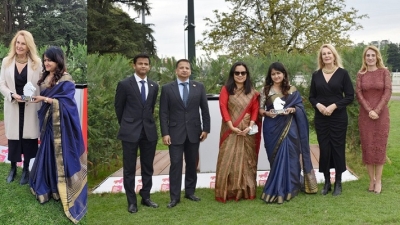The recent announcement of Moonlighting policy by Swiggy has caused an upheaval! There are opinions ranging from ‘two-timing’ and ‘cheating’ and about ‘increased employee morale!’
Moonlighting essentially means the pursuit of a job carried out by an employee of a company after his regular office hours. This is not even Freelancing as freelancers work for many companies simultaneously and are not permanent employees of a certain company.
Moonlighting can emerge from a hobby or an interest and it can be monetised or can be pro bono. However, the employee has to declare to his company about the same and there should be no conflict of interest. Moreover, the external projects should not impact the productivity of the main employment. With the onset of the Pandemic, moonlighting has gained momentum. A lot of people who take up secondary jobs are only trying to satisfy their appetite for growth, learning, and doing what they love. There are a number of portals which extend the opportunity to work part-time and earn extra income. This is probably GIG working with a twist! It is important to understand the intersection of the Gig Economy, Millennials & GenZ (GEMZ).
India’s Gig sector is expected to grow to over USD 450 billion by 2024. A 2021 global study about millennials found that 64 percent of full-time millennial workers, want to work in the gig workforce.
The Factories Act 1948 u/s 60 prohibits dual employment. However, this is limited to factory workers and does not govern other sectors of employment. If the employment letter does not forbid dual employment and there is no non-compete clause, an employee can engage in moonlighting.
In India, there is no legal restriction on dual employment in certain States. Under the AP Shops Act, no employee is allowed to work in any establishment. In the case of full-time employment, the employee is generally expected not to take up work for another employer, including while they are serving their notice period for their existing employer. However, in the absence of a specific legal prohibition, it is advisable to include such a restriction in the employment contract. Moonlight clauses are added to the employment agreement with the aim of ensuring the efficiency and focus of employees at their current employment.
Delhi Shop Act states that no person shall work for the business of an establishment or two or more establishments or an establishment and a factory for a period in excess of which he may lawfully be employed under the act.
Bombay Shop Act, which provides in section 65 of the act that no employee shall work in any establishment, nor shall any employer knowingly permit an employee to extend services to another establishment on an off day as per the Act.
U/s 8 of schedule I-B the Industrial Employment (Standing Orders) Central Rules, 1946 states that a workman cannot by doing dual employment work against the interest of an industrial establishment.
Even after the epidemic, which is still having an impact on business as evidenced by movements like “Silent Resigning” and the Great Resignation, the majority of nations including India are yet to introduce legislation to aid in workers’ recovery. Even though the Indian labour laws are silent on the aspect of dual employment, dual employment is considered a valid ground for termination of employment.
India is in the process of getting convinced about a 4-day work week. Maybe it’s time to think about multiple jobs held by a single person and legalise it and give it proper structure. Who knows moonlighting may be the future – for this Regulations Needs Transformation!


